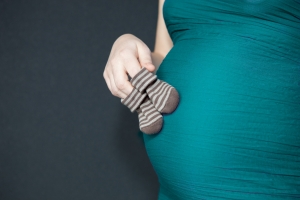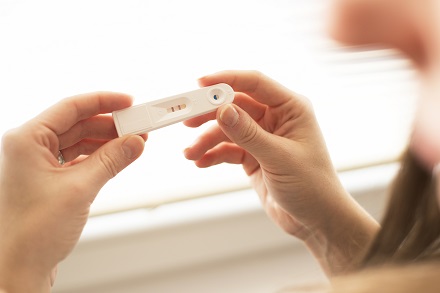Depression can happen to anyone. So it’s no surprise that it can happen during pregnancy. In fact, The American Congress of Obstetricians and Gynecologists estimates that as much as 23% of pregnant women experience some form of depression during their pregnancy. Before we talk about how women can cope with and overcome depression during pregnancy, it’s important to know the symptoms and causes of it first.
There are many possible causes of depression during pregnancy. They include domestic violence or a strained relationship, lack of a support system, anxiety, excessive worry about the pregnancy, loneliness, lack of social interaction, young age, hormonal changes, a history of depression and even a history of PMS.
How can you know if you have depression during pregnancy? Typical symptoms will include depressed mood for two weeks or more, feelings of guilt, lack of energy, lack of appetite or increased appetite, thoughts of suicide, hopelessness, sleeping too much or insomnia, lack of concentration or focus, feelings of worthlessness and lack of enjoyment in favorite activities, among many others.
Now that you know the causes and symptoms of depression during pregnancy, it’s critical to learn how to cope with it. If the depression isn’t treated in some way, there’s a chance that the woman may cause harm to her baby whether directly or indirectly. She may turn to drinking, drugs or smoking which can cause great harm to the development of the fetus. She may also engage in dangerous behavior that can cause harm to the fetus. She may also be considering suicide, which would of course also kill her unborn child. The good news is that there are effective treatments available for pregnant women who are enduring depression.
There are antidepressant medications available which can be used during pregnancy. Medications can help alleviate the symptoms of depression, including the anxiety and fear. However, medication is not the only option available; there are many other options for treatment.
Psychotherapy is a highly effective treatment method for depression during pregnancy. Simply talking to an experienced therapist can be a great help. The therapist will work to get to the root of the issue, whether it is due to relationships, behavior or simply stress.
Exercise and activity is a top way to treat depression during pregnancy. Simply doing more walking can be very effective. Exercise is effective at releasing mood boosting endorphins and neurotransmitters in the brain. Exercise also helps to increase the body’s temperature which can be calming to the body. In addition, exercise decreases chemicals in the immune system that have been found to make depression worse. However, do note that all pregnant women should consult with their doctor before starting any exercise, as certain types of exercise may not be advisable during certain times of the pregnancy or if you have certain conditions or complications.
Other therapies are also available which can alleviate depression symptoms. Acupuncture is becoming more widely accepted for use during pregnancy. The Stanford School of Medicine did a study in 2010 which showed that treatment with acupuncture was able to alleviate symptoms of depression in pregnant women.
There are also support groups available specifically for pregnant women with depression. Pregnancy support groups can help increase self-esteem and decrease symptoms of depression. Support groups can be found locally or even online, such as in chat rooms or message boards.
When dealing with depression during pregnancy, it is critical to recognize it and get help as quickly as possible, as it can have a massive effect on your unborn baby and its health when born.



